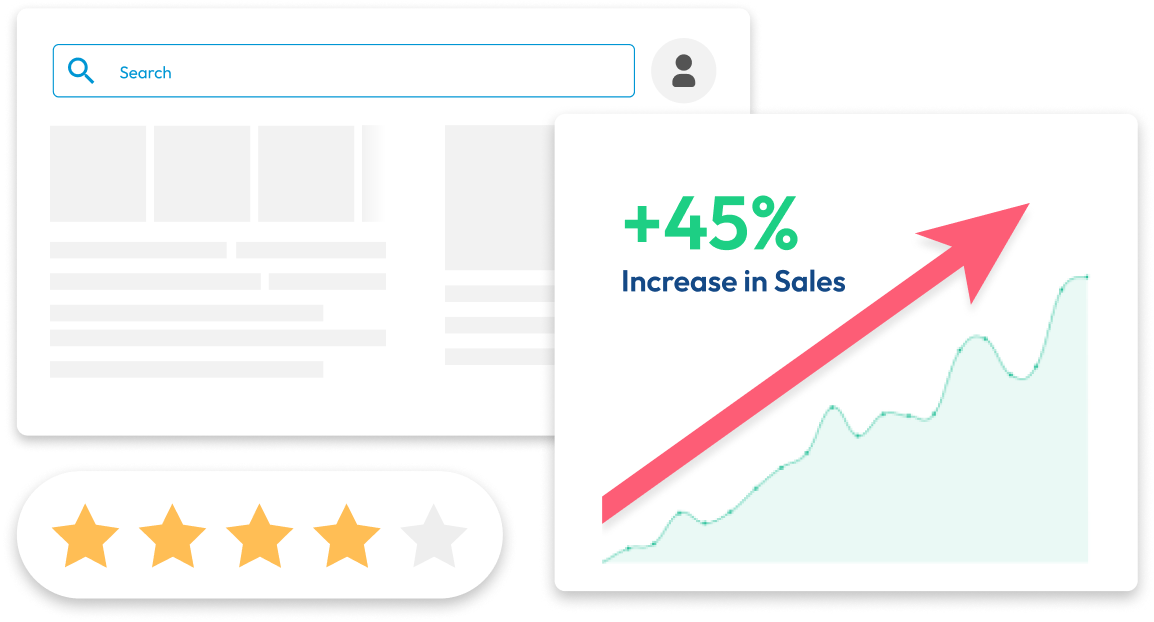Get a free consultation with us!
Stop wasting money and unlock the hidden potential of your advertising.
- Discover the power of intentional advertising
- Reach your ideal target audience.
- Maximize ad spend efficiency.

Imagine that you could make a few simple changes to your website and make it the first choice for people who want to buy something. This is what SEO, or Search Engine Optimisation, can do. If you do SEO correctly, search engines like Google or Bing will show your website more often, making it easier for more people to find you. SEO in digital marketing is about improving your website so it shows up higher in search engine results. This mostly entails using the right keywords and ensuring your site loads fast and looks good on devices like phones, tablets, and desktops. SEO helps your information reach the right people without spending much on ads. Implementing effective SEO strategies can significantly improve your website's visibility, attract targeted traffic, and drive more sales and revenue. SEO involves various practices to make your website more attractive and accessible to search engines. Here's a closer look at the key aspects: Stop wasting money and unlock the hidden potential of your advertising. On-page SEO covers everything you can adjust on your website to improve its ranking in search engine results. This includes the content you create and the HTML source code. Here's how you can optimise these elements: 1. Keyword Research Keywords are the terms and phrases that people type into search engines. Conducting thorough keyword research helps you discover exactly what your audience is searching for so you can create content that answers their questions and meets their needs. 2. Meta Tags Meta tags are snippets of text that describe a page's content; they don't appear on the page itself but in the page's code. Good meta tags help search engines understand what your webpage is about and can improve how frequently your site appears in search results. 3. Content Optimisation Effective content optimisation involves strategically using keywords within your text without overdoing it. The goal is to keep your writing engaging and informative while signalling to search engines the relevance of your content to specific search queries. Off-page SEO includes tactics outside your website that influence your site’s ranking. These are some methods to enhance your off-page SEO: 1. Backlinks Backlinks are links from other websites to yours. Each backlink acts as a vote of confidence from another site, indicating to the search engines that your content is valuable and credible. 2. Social Signals When your content is shared, liked, or commented on on social media, it signals to search engines that people find it useful. Active social media engagement can boost your SEO by showing search engines that your content is relevant to a wide audience. Technical SEO focuses on improving the infrastructure of your website so that search engines can easily crawl and index your content. Key areas include: 1. Site Speed A fast-loading site enhances user experience and is favoured by search engines. Optimising your images, browser caching, and code minimising can significantly increase site speed. 2. Mobile-Friendliness As mobile browsing becomes more common, having a mobile-friendly website is essential. Search engines like Google prioritise mobile-friendly sites because they provide a better experience for mobile users. 3. Indexing Ensure that search engines can crawl and index your site effectively. Properly setting up your site's architecture and sitemap allows search engines to quickly find and list your pages in search results, making your site more discoverable. SEO benefits businesses in many ways - it is vital to your digital strategy. Here's how SEO can positively impact your business: 1. Increased Visibility Good SEO practices push your website up the search engine results pages (SERPs). This higher ranking means your website becomes more visible to those actively searching for what you offer. The more people see your site in their search results, the more likely they will click through. 2. Higher Traffic As your visibility increases, so does the traffic volume to your site. SEO helps attract a steady stream of visitors without expensive advertising. This influx of web visitors is not just about numbers - it's targeted traffic, meaning the people landing on your site are looking for something specific that you provide. This can lead to higher conversion rates as these visitors are more likely to purchase, fill out a contact form, or perform another conversion-related action. 3. Better User Experience SEO isn't just about pleasing search engines — it's also about enhancing the user experience. A well-optimised site is intuitive and user-friendly, making it easier for visitors to navigate, find the necessary information, and take action. By improving the structure and content of your site, you help ensure visitors have a positive experience, which can also lead to increased engagement and customer loyalty. 3. Cost-Effective Marketing Unlike many traditional marketing strategies that involve significant investment with variable returns, SEO stands out for its cost-effectiveness. By targeting users actively searching for your products and services, SEO cuts through the noise and delivers your message to a receptive audience. This targeted approach reduces waste, maximises your marketing budget, and increases the overall ROI of your marketing efforts. By implementing robust SEO strategies, you are improving your online presence and setting the stage for sustainable business growth. These benefits contribute to a stronger online footprint, better customer interactions, and an enhanced ability to compete in your market. A good SEO plan can help your website and business grow. Here’s how to do it step-by-step in simple terms: 1. Setting SEO Goals Whether you want to boost website traffic, skyrocket product sales, or elevate brand recognition, having specific objectives is key. First, decide what you want to achieve. More visitors? Set a target of increasing organic traffic by 20% in six months. Boosting sales? Aim for a specific sales number or revenue increase. Greater brand recognition? Track metrics like brand searches or social media mentions. Clear goals help you stay focused and measure your success. Follow the SMART criteria: Specific, Measurable, Achievable, Relevant, and Time-bound. For example, say, "I want to increase organic traffic by 20% in six months" instead of "I want more traffic." Break big goals into smaller tasks. If boosting traffic is your aim, tasks might include optimising content, creating new blog posts, or building backlinks. Each small win gets you closer to your main objective. Remember, goal-setting is ongoing. 2. Analysing Competitors You need to know what your competitors are up to. Here’s how: focus on keywords, content, backlinks, and technical SEO. Start with keywords. Use tools like SEMrush, Ahrefs, and Moz to determine which keywords your competitors rank for. Optimise your content around these or discover gaps they’ve missed. Next, evaluate their content. Look at their blog posts, videos, and more. Are they addressing customer needs effectively? Find ways to do it better and cover topics they’ve overlooked. Then, check their backlinks. Tools like Majestic or Open Site Explorer can show you who’s linking to them. Aim to get links from these sites and identify new opportunities. Finally, don’t ignore technical SEO or you can hire seo and digital marketing consultant if you find it techy. Use Google PageSpeed Insights and Screaming Frog to assess site speed and mobile-friendliness. A technically solid site boosts both SEO and user experience. You can refine your strategy by analysing your competitors and stand out in search results. Be smarter and go beyond what they’re doing. 3. Monitoring and Measuring Success Using tools like Google Analytics to see how well your SEO is working is important. These tools tell you how many people visit your website, which pages they like the most, and how they find you. For example, after improving their SEO, many businesses see their visitors increase by about 55%. Also, about 30% of mobile phone searches are for finding local places, so ensuring your local information is easy to find is important. Checking this information regularly helps you determine what's working and what you might need to change. This will improve your website and attract more visitors. 3. Continuous Optimisation SEO isn’t something you can do once and forget about. It needs regular updates and adjustments. Keep your content fresh, check that your keywords are relevant, and make sure your website is easy to use and quick to load. Also, learn about new SEO tips and updates to ensure your strategies stay effective. Following these simple steps, you can build a strong SEO strategy that makes your website easier to find and helps it stay competitive and relevant as internet trends and technologies change. As everything online changes, your SEO must keep up to ensure your business stays ahead. It's important to keep learning about new SEO strategies and updates. Joining SEO groups, watching online lessons, and reading about SEO can help you stay on top of trends. Remember, SEO is a big part of your plan to improve your website and strengthen your business. By keeping your SEO strategies fresh and effective, you can ensure that your business not only keeps going but also grows and reaches more people. Start improving your SEO with Xugar and watch your business reach new heights!
Get a free consultation with us!
On-page SEO
Off-Page SEO
Technical SEO
Benefits of SEO
Implementing SEO Strategies
Conclusion:





WINNER

FINALIST

FINALIST

WINNER

WINNER

FINALIST

FINALIST

WINNER
